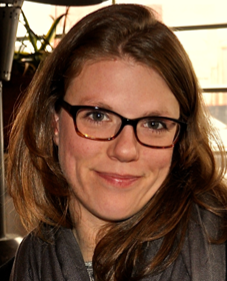About the Seminar
The interface between two fluids is not only important for defining reactivity of dislike materials, but is also applicable for the preparation of stable higher order structures. Recently, the Pentzer lab developed 2D carbon-based nanosheets that assemble at different fluid-fluid interfaces including oil-water, oil-oil, and ionic liquid-water and demonstrated the use of these Pickering emulsions as templates for the preparation of higher order hybrid structures. Graphene oxide (GO) and its functionalized analogues are used as the 2D particle surfactant, and are especially attractive given they have properties distinct and complimentary to the more commonly studied spherical and rod-like counterparts, and because these nanosheets are multifunctional (e.g., antimicrobial, good gas barriers, precursor to electrically conductive nanosheets, etc.). Recent advances from the Pentzer lab will be reported, including preparation of Janus nanosheets, water-sensitive reactions in oil-in-oil emulsions, GO capsules filled with ionic liquid for supercapacitor electrodes, GO capsules for compartmentalization of phase change materials, and GO coatings for 3D printable polymers to prepare conductive structures. This work makes use of fundamental organic chemistry reactions and thus gives access to unique structures and assemblies of interest for a broad range of applications in a scalable fashion.
About the Speaker
Emily Pentzer is the Frank Hovorka Assistant Professor of Chemistry at Case Western Reserve University in Cleveland, OH. She received a BS in chemistry from Butler University (2005) and PhD in organic chemistry from Northwestern University (2010), where her thesis work focused on metathesis routes for preparing and polymerizing unsaturated medium-sized lactones and lactams under the direction of Professor Sonbinh T. Nguyen. She then worked with Professor Todd Emrick in the Polymer Science and Engineering Department at UMass Amherst where she focused on the synthesis and assembly of electronically active materials for organic photovoltaics as part of a DOE EFRC on Polymer-Based Materials for Harvesting Solar Energy. In 2013, Dr. Pentzer joined the faculty at CWRU in chemistry and received a secondary appointment in Macromolecular Science and Engineering in 2015. Her research uses organic synthesis to access new materials and assemblies as a route to understand structure-property relationships and access electronic properties not possible with current state-of-the-art systems. Dr. Pentzer has received several awards including the NSF-CAREER award (2016) and PMSE Young Investigator Award (2017). She currently serves as an Associate Editor for the RSC journal Polymer Chemistry as well as the publicity chair for the Polymer Division (POLY) of the American Chemical Society.



